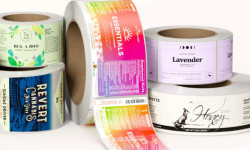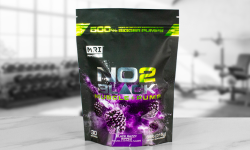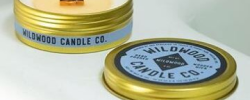Accurate dietary-supplement labeling is more than just following the rules—it’s about protecting your brand, building trust, and keeping consumers safe. Labels that mislead or omit important information not only risk fines but can also damage your reputation.
Whether you’re designing a supplements bottle with a label for a new product or updating an existing vitamin label, knowing the dos and don’ts is essential.
Here’s a breakdown of the most important rules to follow and common mistakes to avoid when creating dietary-supplement or vitamin labels.

The “Dos” of Dietary-Supplement Labeling
1. Truth in Labeling
Always provide clear, honest, and accurate information. Consumers rely on your vitamin label to understand exactly what they’re taking.
What to Include:
- Ingredient List: Clearly list all active and inactive ingredients. Avoid vague terms like “proprietary blend” unless details are provided.
- Quantity and Potency: Be specific about dosages (e.g., “500 mg Vitamin C per serving”).
- Allergen Warnings: Clearly state common allergens (e.g., soy, nuts) if they are present.
2. Comply with Labeling Requirements
The FDA’s labeling regulations are there for a reason: to ensure consumer safety. Your vitamin labels must include:
- Product Name: Identify it as a dietary supplement or vitamin on the front.
- Net Quantity of Contents: Include the weight, volume, or count.
- Directions for Use: Explain serving size and how to take the product.
- Supplement Facts Panel: This includes ingredients, serving sizes, and nutritional information.
The “Don’ts” of Dietary-Supplement Labeling
1. Avoid Misleading Claims
Claims like “cures all ailments” or “guaranteed results” can mislead customers and violate FDA guidelines. Every claim you make must be backed by evidence.
Common Misleading Practices:
- Exaggerations: Avoid phrases like “clinically proven” unless you can support them with rigorous scientific studies.
- Implying Medical Benefits: Supplements are not medications. Phrases like “treats heart disease” are prohibited unless specifically approved.
2. Don’t Skip Mandatory Information
Missing any required labeling element, like an allergen warning or a clear list of ingredients, can lead to recalls or fines. Double-check every vitamin label for compliance.

Health Claims and Scientific Evidence
Dietary supplements can only make certain claims under strict regulations. These fall into three categories:
- Structure/Function Claims: Explains how the supplement supports the body (e.g., “Supports immune health”).
- Health Claims: These link nutrients to specific health outcomes (e.g., “Calcium may reduce the risk of osteoporosis”) and must be FDA-approved.
- Nutrient Content Claims: Describes the level of a nutrient (e.g., “Excellent source of Vitamin D”).
Tip: Always have scientific evidence to back up your claims. A lack of proof can result in regulatory action.
Educating Consumers Through Labeling
Labels aren’t just about regulations—they’re also tools for educating your customers. Many shoppers don’t fully understand dietary supplements, so help them make informed decisions by including:
- Clear Usage Instructions: Outline exactly how and when to take the supplement.
- Warnings and Precautions: Inform users of possible side effects or interactions.
- Transparent Sourcing: Highlight if your product is organic, non-GMO, or sustainably sourced.
Providing this information can build trust and set your brand apart.
Examples of Common Dos and Don’ts
Do:
- List exact quantities, like “Contains 300 mg Omega-3s.”
- Include allergen warnings for transparency.
- Label the product as a “dietary supplement” clearly on the front.
Don’t:
- Claim your supplement “cures” or “treats” diseases without FDA approval.
- Skip the Supplement Facts Panel or allergen information.
- Use vague or exaggerated marketing terms like “proven to work miracles.”

Final Thoughts on Dietary-Supplement Labeling
Getting dietary-supplement labeling right isn’t just about following the rules—it’s about building trust with your customers. By providing accurate information, avoiding misleading claims, and educating your audience, you can create a label that’s both compliant and appealing.
Take the time to design a supplements bottle with label or vitamin label that reflects the care and quality of your product—it’s an investment in your brand’s future. We provide customizable supplement labels that are high quality and smudge-resistant. We are here to help with any questions you might have.







